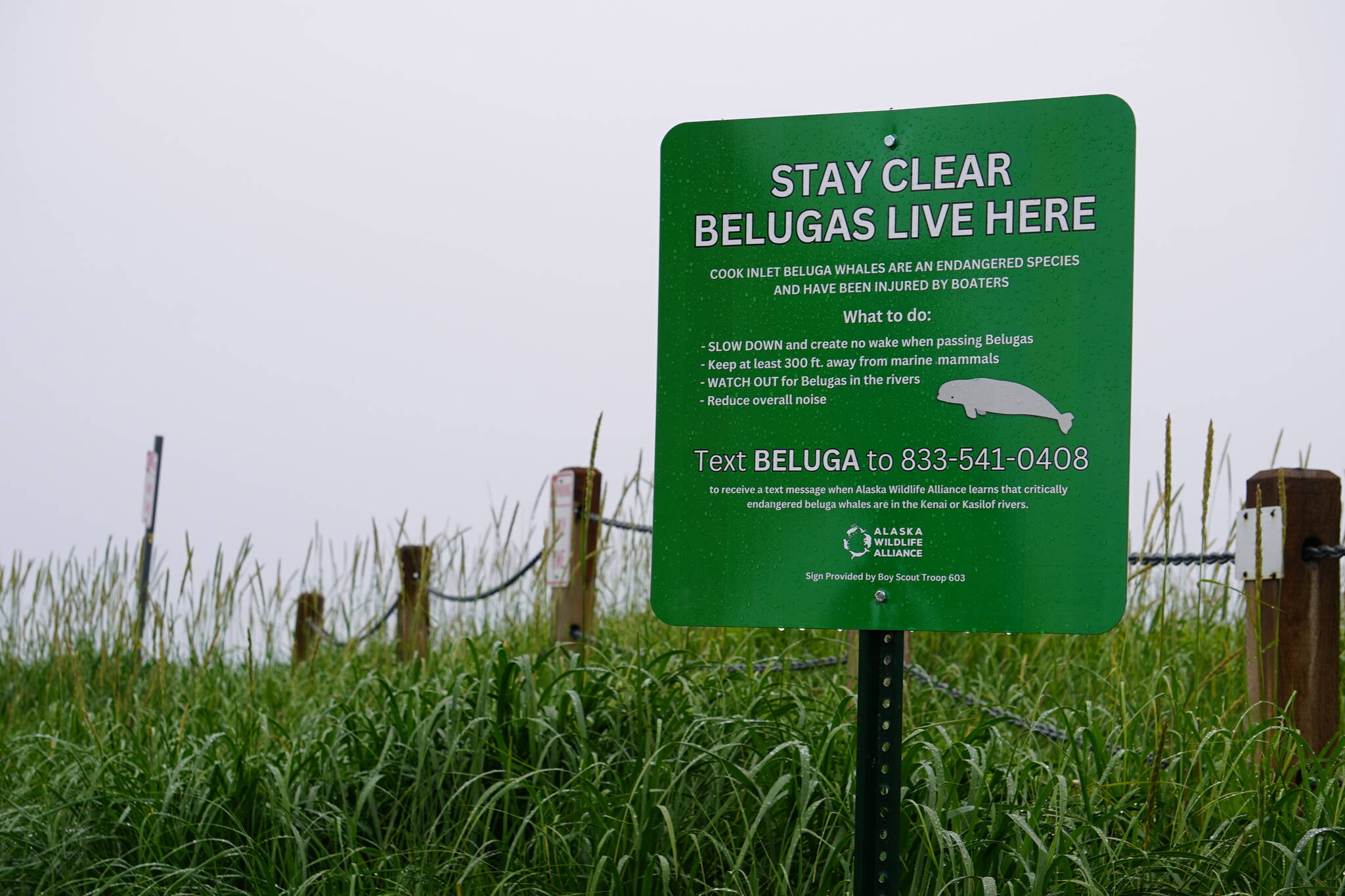Along the pristine west side of lower Cook Inlet lies Tuxedni Bay, the only known winter feeding ground for the inlet’s critically endangered beluga whales. Cook Inlet belugas are irreplaceable, uniquely adapted to the inlet’s challenging conditions and loved far and wide as an emblem of our still-wild home.
But an industrial port for the proposed Johnson Tract gold mine could decimate the bay, proliferating vessel noise and pollution, destroying belugas’ prey and degrading their habitat. If this mine is allowed to move forward, I’m afraid we could watch Cook Inlet belugas slide into extinction.
I spent a glorious bluebird day this summer flying over the proposed Johnson Tract site in a bush plane while visiting local lodge owners concerned about the mine. The mine would sit at the base of Iliamna volcano, surrounded by Lake Clark National Park with Tuxedni Bay just north.
It’s difficult to fathom the senselessness of destroying this spectacular place for gold, especially because the bay is so critically important to Cook Inlet belugas.
We recently learned that Tuxedni Bay is the only known place where the belugas feed during the winter, according to a NOAA Fisheries study published in July. They also feed in the bay throughout the spring and fall. We know belugas need a consistent food source after salmon runs end in the summer. Starving whales in the winter can’t birth and raise strong young come spring to help the population recover. It’s crucial to keep this vital beluga habitat intact and abundant.
The study also found that Tuxedni is the quietest remaining habitat for belugas in the entire inlet. Especially in the inlet’s muddy waters, the whales rely on sound to navigate, communicate, find prey, locate breathing holes in the ice and avoid predators. Their hearing is incredibly sensitive, and avoiding and reducing human-caused noise is key to their recovery.
We need to help belugas by keeping the bay undeveloped and quiet. It’s a much easier task than quieting already-developed areas like the Port of Alaska.
The mine, haul road, and port would threaten more than just belugas. Lake Clark’s famous brown bears, wolves and wolverines, nesting puffins, and the area’s rich salmon runs also could be devastated, along with setnetter camps and a bustling bear-viewing economy.
While ensuring that Tuxedni Bay is protected seems like a no-brainer, the mining company Contango Ore and Cook Inlet Region Inc., which owns the Johnson Tract land, are rapidly advancing this project.
Gold is not an energy transition mineral. The vast majority of mined gold ends up in bank vaults or becomes luxury jewelry. It’s impossible to stomach the thought of destroying this area and its wildlife to make a quick buck.
To help avert this unthinkable future, my organization, the Center for Biological Diversity, along with Cook Inletkeeper, recently petitioned NOAA Fisheries to create a beluga protection zone in Tuxedni Bay to ensure the area remains unmarred by industrial development.
The federal government and CIRI must find a solution so that the corporation can support its shareholders without building the mine and driving Cook Inlet belugas extinct. The cost of the Johnson Tract mine to belugas, bears and the Lake Clark landscape is simply too high.
Cook Inlet belugas deserve a bright future. By protecting Tuxedni Bay, we can ensure they have a fighting chance to fully recover and thrive once again.
Cooper Freeman is the Alaska director at the Center for Biological Diversity and lives in Homer.

